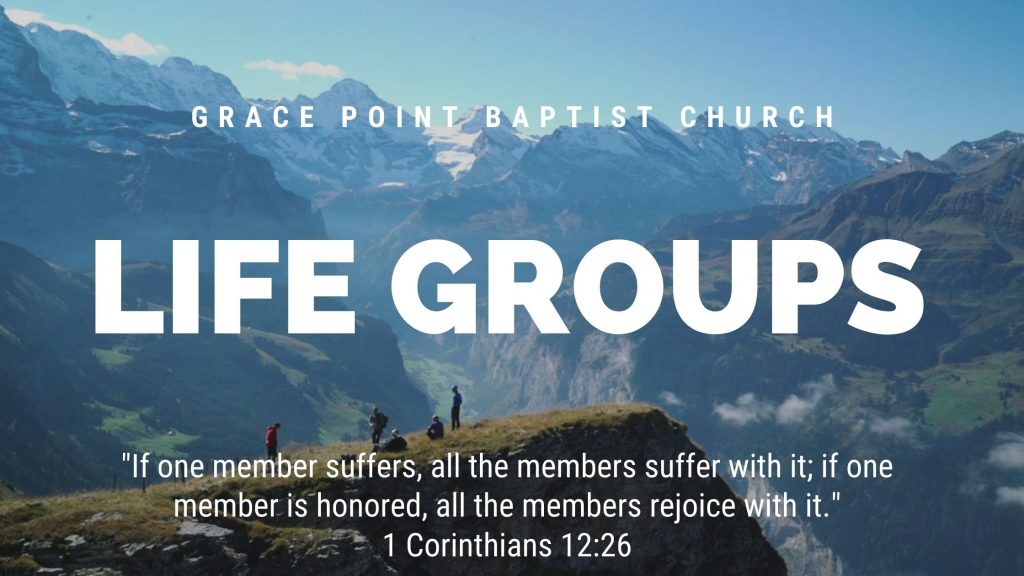
What are they, and
why do they matter?

Brett Stark
Introduction: A simple definition of a ‘Life Group’ is: “A micro-community of 5 to 12 Jesus followers doing the Christian life deeply together.” If honesty and vulnerability are necessary for spiritual growth, group dynamics would tell us that the levels of transparency that make this possible won’t happen if the group is made up of more than 12 or less than 3 individuals. It is in essence, ‘doing life deeply together’.
“Doing the Christian life deeply together” can be seen in the practices of some of the first believers, following Pentecost, as recorded in Acts 2:42-47. Included in this list are:
- Devotion to living out what they learned from studying God’s Word together (“the apostles’ teaching)
- Devotion to doing life together (“fellowship” or koinonia)
- Eating together and/or partaking of the Lord’s Supper together (“the breaking of bread”)
- Wholehearted, faith-centered prayer that brought about the miracles seen throughout the book of Acts
- Meeting one another’s needs even when it meant giving up something substantial of their own (Acts 2:44-45)
Life groups, unlike straightforward Bible studies (like Sunday schools and other studies, make disciples through the utilization of and processing of God’s story as it intersects with our stories. When an individual becomes a part of a Life Group, that person involves herself/himself in the gaining and processing of biblical knowledge in community and grows from input from others to understand life in relationship with God. This is what is called “experiential discipleship.”
Examples of experiential discipleship in action include experiencing a “dark night of the soul” season and processing that time of life through the lens of Scripture with a group of fellow journeyers; dealing with the heartbreak of a broken relationship and processing with others the pain in light of God’s Word as it speaks to grief, loss, and ultimate victory, or facing failure and working through it as group members share their stories and together look at examples from Scripture.
But experiential discipleship isn’t just about darkness, missteps, and failure. Life groups encourage one another, celebrate life’s accomplishments together, observe traditions together, and rejoice together when God answers their prayers. A biblical Life group knows and does 1 Corinthians 12:26, “If one member suffers, all the members suffer with it; if one member is honored, all the members rejoice with it.”
The roles and activities of a Life Group tend to fall into four quadrants: theological, relational, restorative, and missional. Here’s how that breaks down:
Theological
Through studying Scripture group members learn out about God’s character and His expectations and allow the Bible to speak into the activities and actions of the group as a whole.
Relational
Those involved learn to embrace interdependency (an “I need you and you need me” mind-set) and put away dangerous childlike dependency (an “I can’t survive on my own, I must have you in my life to take care of me” mind-set), as well as a teenage-like independency (an “I don’t need anyone else. I can do everything by myself” mind-set).
Restorative
Through His power and healthy Christian community, God wants to redeem the pain our personal history has caused us and restore in us the joy and peace He promises: “The Spirit of the Lord GOD is on Me, because the LORD has anointed Me to bring good news to the poor. He has sent Me to heal the brokenhearted, to proclaim liberty to the captives and freedom to the prisoners; to proclaim the year of the LORD’s favor, and the day of our God’s vengeance; to comfort all who mourn” (Isaiah 61:1-2).
Missional
Life Groups are on mission to meet the needs of the hurting in the name of Jesus, to share with non-believers what Jesus can and wants to do to bring them into a relationship with Him, and to be involved in making the gospel known to all nations – The Great Commission – “But you will receive power when the Holy Spirit has come on you, and you will be My witnesses in Jerusalem, in all Judea and Samaria, and to the ends of the earth” (Acts 1:8).




